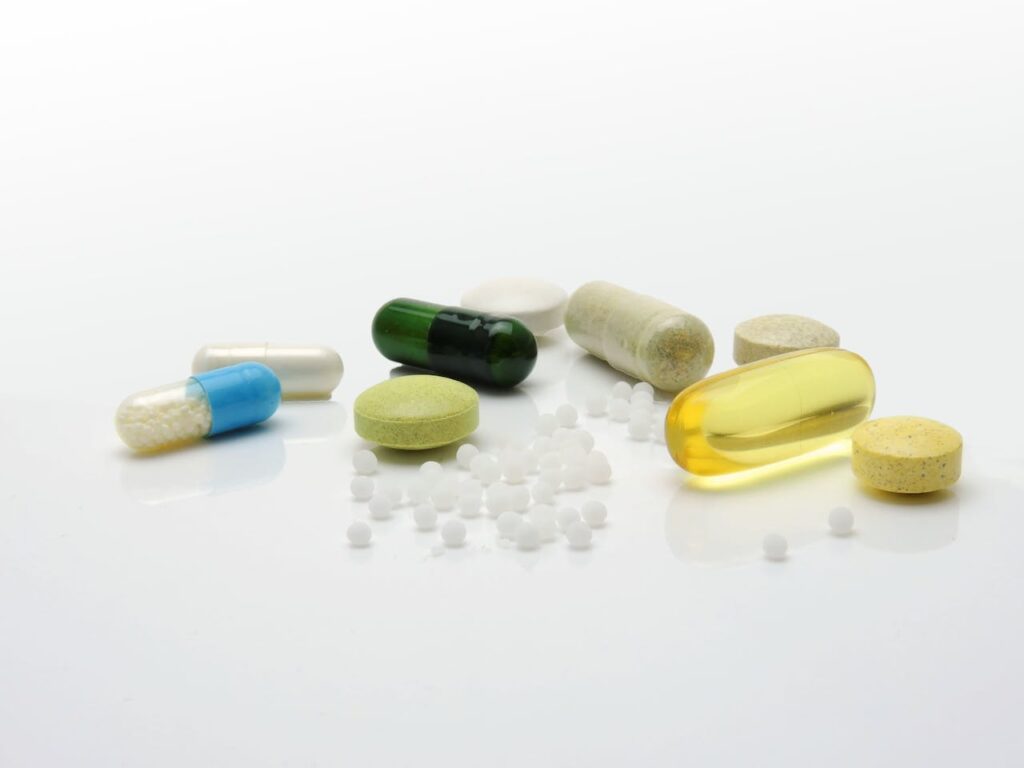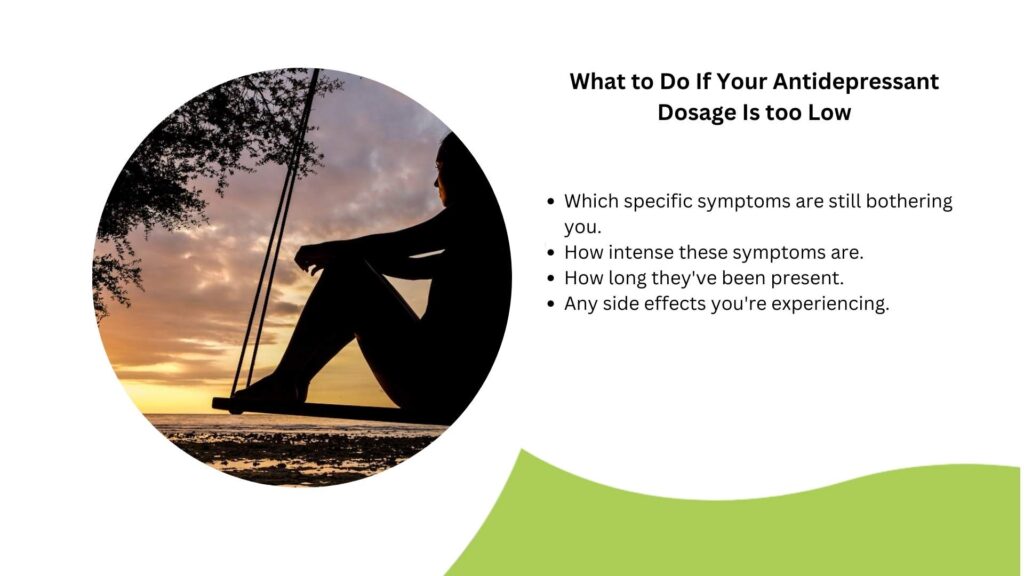
Starting an antidepressant is a significant, often hopeful, step toward managing depression. For many, it marks the beginning of feeling more like themselves again. However, the journey to feeling truly well isn’t always a straight line. Finding the “just right” dose of medication for your unique brain chemistry can take time and requires open, honest communication with your prescribing doctor.
It’s common for an initial dosage to be a conservative starting point, or for your body’s needs to subtly shift as you progress in treatment. If you’ve been taking your antidepressant consistently for several weeks (typically 4-6 weeks is the timeframe doctors recommend for full effects to manifest) and are still struggling, it’s crucial to consider whether your dose might be insufficient. Recognizing these signs isn’t about self-diagnosing or adjusting your own medication – it’s about empowering yourself with information to have an informed discussion with your healthcare provider.
Here are key indicators that your antidepressant dose might be too low, suggesting it’s time to talk to your doctor:
Persistent or Returning Depressive Symptoms
This is often the most direct and concerning sign. While you might have experienced some initial relief, if many of your original depression symptoms continue to linger or have started to reappear after a period of improvement, your dose might not be adequately supporting your brain’s needs.
Lingering low mood: You might still be experiencing a pervasive feeling of sadness, emptiness, hopelessness, or irritability that just won’t lift. It’s more than just a “bad day”; it’s a persistent emotional weight.
Lack of interest or pleasure (Anhedonia): A core symptom of depression is anhedonia – the inability to find joy or pleasure in activities you once loved. If this persists, or if you feel emotionally “flat” and numb to positive experiences, your medication might not be fully addressing this crucial aspect.
Low energy and pervasive fatigue: Despite taking your medication, you might still feel overwhelmingly exhausted, physically heavy, and profoundly unmotivated. Daily tasks feel like insurmountable hurdles, and even simple activities drain your reserves.
Ongoing sleep disturbances: Whether it’s persistent insomnia (difficulty falling or staying asleep) or hypersomnia (sleeping excessively but still feeling unrefreshed), chronic sleep problems can indicate that your depression isn’t fully managed by your current dose.
Difficulty concentrating and cognitive fog: If you’re still struggling with brain fog, poor memory, indecisiveness, or an inability to focus on tasks at work or home, your cognitive symptoms might be signaling a need for dose adjustment.
Incomplete or Fluctuating Improvement
Perhaps you felt a bit better after starting the medication, but the progress has stalled, or your symptoms seem to fluctuate wildly rather than stabilizing. This “almost there, but not quite” feeling often points to an inadequate dose.
Only partial relief: You might acknowledge that you feel “a little better,” but your depressive symptoms still significantly interfere with your work, relationships, or overall quality of life. The medication is helping, but not enough to achieve remission or a substantial improvement.
Unstable mood swings: Instead of experiencing a more consistent and stable emotional state, you might find your moods are still unpredictable, shifting rapidly between slightly better and significantly worse periods.
Symptoms return after initial improvement: Sometimes, people experience a quick initial lift after starting an antidepressant, which can occasionally be a placebo effect, or simply an early, less robust response. If this initial improvement then plateaus or your symptoms revert, it could mean the initial dose wasn’t sufficient to maintain lasting positive changes.
Persistent Anxiety or Restlessness
Depression and anxiety often walk hand-in-hand. While antidepressants can be effective for both, a dose that’s too low might not adequately address co-occurring anxious feelings.
- Feeling agitated, restless, or on edge: An underlying sense of internal unease, fidgeting, or a persistent inability to relax might indicate that your medication isn’t fully calming your nervous system.
- Experiencing heightened worry, nervousness, or panic attacks: If your anxiety symptoms remain intense, frequent, or escalate to panic attacks, it’s a strong signal that your antidepressant might not be providing comprehensive relief.
Heavy Reliance on Coping Strategies
Before starting medication, you might have developed various coping mechanisms, some healthy, some less so, to manage your depressive symptoms. If you find yourself still heavily relying on these just to get through the day – such as excessive caffeine, frequent napping, avoiding social situations, or leaning on unhealthy habits – it could be a subtle sign that your antidepressant isn’t providing enough fundamental support. The medication should empower you to reduce your reliance on these compensatory behaviors as your mood and energy improve.
What to Do If You Suspect Your Dose is Too Low
It is absolutely crucial to never adjust your antidepressant dosage on your own. Changing your medication without direct medical supervision can lead to uncomfortable and potentially dangerous withdrawal symptoms, a severe worsening of your condition, or other adverse effects.
If you recognize any of these signs in yourself, the most important and proactive step you can take is to communicate openly and honestly with your prescribing doctor or psychiatrist. They are your partners in this journey. Be prepared to discuss:
- Which specific symptoms are still bothering you.
- How intense these symptoms are.
- How long they’ve been present.
- Any side effects you’re experiencing.
Your doctor can then evaluate your symptoms, consider your overall health, and determine if a dosage adjustment, a switch to a different medication, or the addition of another therapy might be the most appropriate next step for your tailored treatment plan. Finding the right dose is often a process of careful adjustment and close monitoring, and your active participation in communicating your experience is vital for your ultimate success and well-being.

FAQs About Antidepressant Dosing
How long does it usually take for an antidepressant to start working? It typically takes about 2 to 4 weeks to notice initial improvements, with full effects often becoming apparent after 6 to 8 weeks. Patience is key.
Can increasing my antidepressant dose cause more side effects? Increasing the dose can sometimes lead to a temporary increase in side effects, but these often subside as your body adjusts. Your doctor will weigh the potential benefits against any side effects.
What should I do if my antidepressant worked well initially but now seems less effective? This could indicate a need for a dose adjustment or a change in medication. It’s crucial to discuss this with your doctor, as they can assess for tolerance or other contributing factors.
Is it possible for my body to “get used to” an antidepressant over time, requiring a higher dose? Yes, sometimes your body can develop a tolerance, meaning the initial effective dose may no longer be sufficient. This is a common reason for dose adjustments.
What other factors can affect how well my antidepressant works? Lifestyle factors such as sleep, diet, exercise, stress levels, and alcohol/substance use can all influence the effectiveness of your medication. Co-occurring conditions like anxiety or chronic pain can also play a role.
Should I try a different antidepressant if increasing the dose doesn’t help? If you’ve tried an adequate dose for a sufficient period and haven’t seen significant improvement, your doctor might suggest trying a different antidepressant, as different medications work on different brain chemicals.
How often should I check in with my doctor about my antidepressant? Initially, your doctor will likely schedule follow-up appointments every few weeks. Once stable, check-ins might be less frequent, but it’s important to contact them anytime you notice a significant change in symptoms or side effects.
Schedule Your Complimentary TMS Screening Today
At My TMS Therapy, we’re here to help you restore your energy and joy. Our compassionate team will guide you through every step of the process.
Call us at (877) 548-8081 or contact us online to book your screening today.
Sources:
Talkspace. (2024, March 19). Signs Your Antidepressant Dose is Too Low or Too High. https://www.talkspace.com/blog/signs-your-antidepressant-dose-is-too-low-or-high/
Healthline. (2024, December 6). 4 Signs Your Antidepressant Dose May Be Too Low. https://www.healthline.com/health/depression/signs-your-antidepressant-dose-is-too-low
Thriveworks Counseling. (2023, February 9). Signs Your Antidepressant Dose Is Too Low or High. https://thriveworks.com/help-with/medication/signs-your-antidepressant-dose-is-too-low/
Mayo Clinic. (2022, November 29). Antidepressants: Selecting one that’s right for you. https://www.mayoclinic.org/diseases-conditions/depression/in-depth/antidepressants/art-20046273


